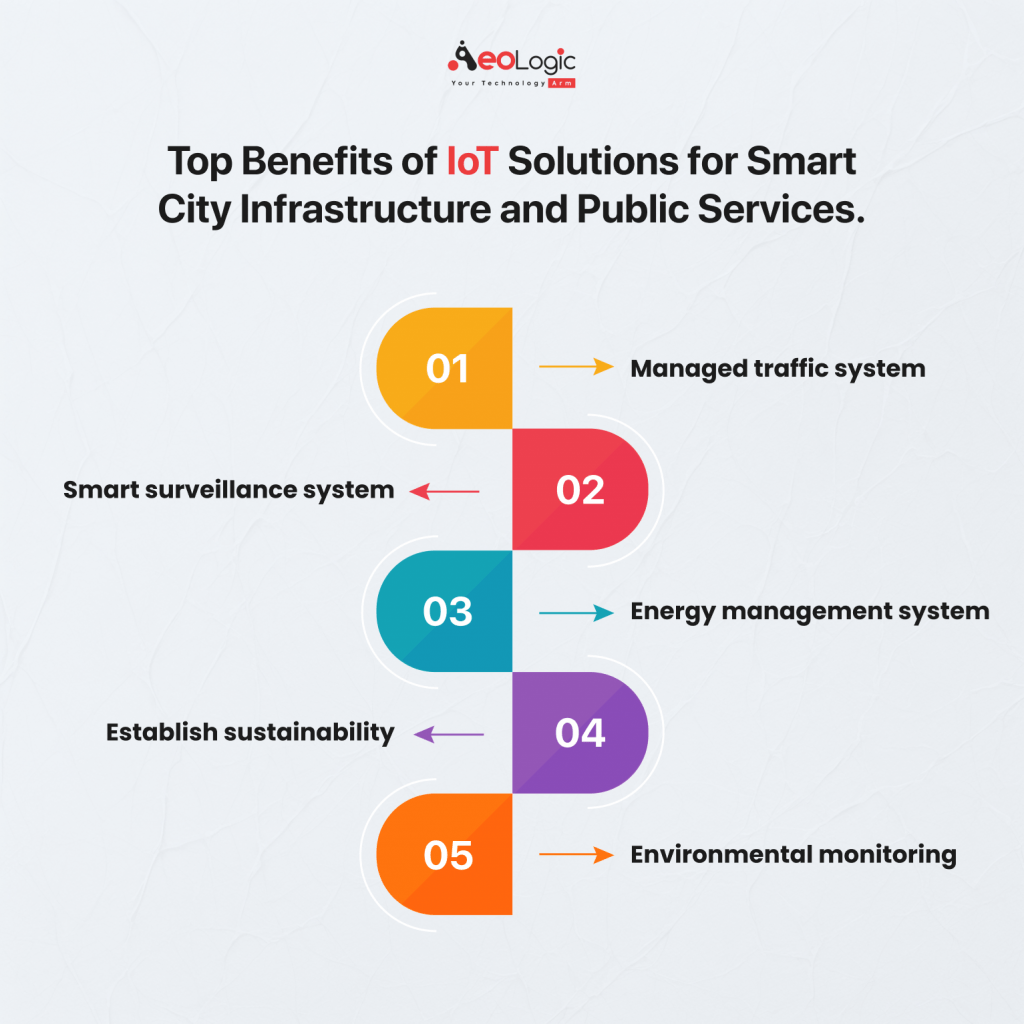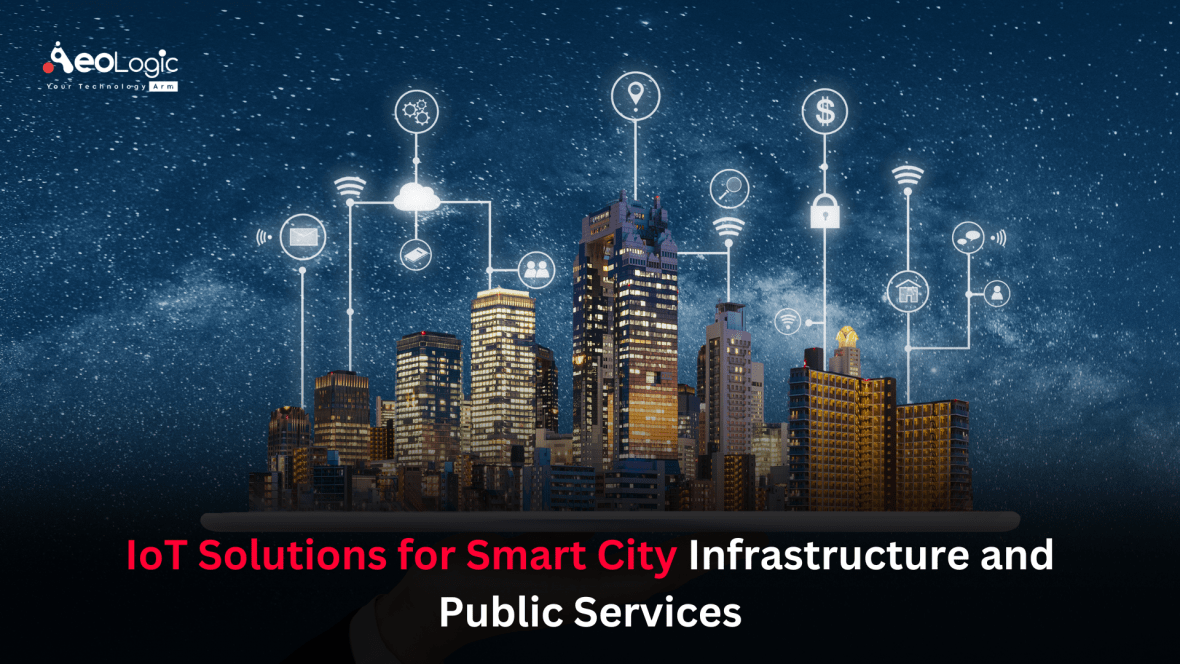Smart city development is a great initiative for urban development that enhances the lives of citizens and also provides a great boost to public services. Governments have started many campaigns to develop smart city infrastructure and public services that have been effectively extinct. Stats-wise, the global smart cities market size was valued at USD 623.90 billion in 2023. The market is projected to grow from USD 767.75 billion in 2024 to USD 4,647.63 billion by 2032, exhibiting a CAGR of 25.2% during the forecast period. The citizen or public services market is expected to be worth $8.71 billion in 2024, with a compound annual growth rate (CAGR) of 34.9%.
Overview + Related Statistics
Since government steps have been effective for smart city infrastructure and public services, they can be enhanced with the integration of some smart technologies. Many regions have been using IoT solution, to develop an actual smart city infrastructure.
It has a lot of abilities, potential, features, and use cases that can contribute efficiently. IoT-powered solutions can implement smart lighting to save energy consumption, enhance energy management systems, improve public security with smart monitoring, create smart parking systems, and establish waste management systems to promote sustainability, smart roads to avoid traffic conditions, etc. There are many other benefits and use cases that we will see later as we move forward in this article.
Individually, the IoT solutions or services market size has grown rapidly in recent years. It will grow from $214.47 billion in 2023 to $249.12 billion in 2024 at a compound annual growth rate (CAGR) of 16.2%. Many regions have implemented the IoT for smart city infrastructure and public services as the IoT in smart cities market size has grown exponentially in recent years. It will grow from $191.76 billion in 2023 to $230.84 billion in 2024 at a compound annual growth rate (CAGR) of 20.4%. Surely these numbers are going to boost in the upcoming few years.
Must Read: IoT Integration in Smart Cities for a Sustainable Future
We have seen the brief introduction about the topic with some incredible and mind-blowing stats that prove every statement. We are now going to see some additional details, like the benefits and challenges of IoT solutions while implementing smart city infrastructure and public services. In the end, we will sign off with a few final words.
Role of IoT Solutions for Smart City
IoT is generally defined as a technology that develops a network for devices to establish a connection and communication among them. IoT can play many important roles in developing a smart city and enhancing public services for better prospects. Various aspects can be enhanced, such as smart energy monitoring, smart street lighting, smart traffic lights, intelligent indoor lighting, emergency escalation systems, city lighting infrastructure monitoring, and other smart city solutions.
Also Read: How IoT is transforming Smart Cities
Top Benefits of IoT Solutions for Smart City Infrastructure and Public Services

There are surely many benefits and use cases of IoT solutions for smart city infrastructure and public services development. Below are a few key benefits.
Establish a well-managed traffic system
The traffic system is a very crucial factor in smart city development and for public services, as traffic management should be in an efficient manner to avoid any inconvenience. With IoT solutions, powered sensors can collect data on traffic conditions and operate traffic lights based on traffic conditions. This does not involve any manual handling that enhances efficiency and accuracy either.
Smart surveillance system
The security of citizens is also an important factor in developing a smart city and better public services infrastructure. Several cases of robbery, theft, etc. can be prevented with IoT-powered solutions. Smart cameras can be implemented within the city that keeps 24/7 eyes on the city to prevent any inconvenience in terms of the security of assets and the public.
Enhance the energy management system
Energy management is another important factor in the development of smart cities. Without any proper tools or solutions, it is not possible to establish an energy management system for the utilization of energy. With IoT solutions, energy consumption can be recorded to avoid over-usage, and smart meters can provide electricity based on use cases, and detect any inconvenience in real time.
Establish sustainability
Smart city development not only involves the enhancement of present scenarios but also needs to think about the future. Sustainability plays an important role in enhancing public services and environmental conditions. IoT solutions power smart systems like smart bins to track the fill level of bins, track the recycling rate, reduce inefficiencies in waste management, etc., to establish a sustainable environmental condition.
Environmental monitoring
There are many situations of bad environmental conditions, like bad air quality, outbreaks of diseases, bad sewage conditions, etc., that directly affect public health and also interrupt the establishment of smart city infrastructure. With IoT solutions, it is possible to monitor air quality in real-time to take any action during adverse conditions, allow prevention before the spreading of diseases, enhance sewage management, etc.
Challenges of IoT Solutions for Smart City Infrastructure
Now it’s time to move on, looking for some challenges with IoT solutions. Here are a few mentioned below.
- Hacking can be a challenging thing for IoT solutions, as hackers with wrong intentions could affect the whole system.
- Government policy can be an aspect to think about, as it is not necessary that every IoT device follow all regulations.
- IoT solutions are implemented for energy management, but the irony is that IoT devices also need a lot of energy consumption to operate.
Also Read: RFID and IoT Solutions for Real-Time Inventory Management in Retail
The Future of IoT Solutions and Smart Cities
The combination of IoT and urban development offers transformational transformations. As cities evolve, the usage of IoT for smart cities becomes more integrated, hence improving urban life. This technology is already changing the way cities manage their resources, improve public services, and ensure sustainability. IoT applications in smart cities span from increasing energy efficiency to developing more responsive public safety systems.
Shortly, IoT will connect cities even more, with data-driven insights leading to better decision-making. The relevance of IoT in smart cities goes beyond operational efficiency; it is about building settings that respond to the requirements of their inhabitants. Consider smart buildings that cut energy use dynamically, or traffic systems that eliminate congestion before it occurs. Real-time data analysis will allow public services to become more personalized, anticipating citizens’ requirements.
As IoT technology progresses, the opportunity for innovation in urban planning and administration grows. Cities will become more resilient, and able to respond to changes and crises with remarkable speed. The future of urban living is on the verge of a revolution, fuelled by IoT. Cities of the future will be not only smart but also naturally connected with the rhythms of human life. This shift towards smarter, more sustainable cities is not just unavoidable; it is already occurring, paving the way for a future in which technology and urban life are seamlessly intertwined.
Also Read: The Impact of RFID and IoT on Retail Loss Prevention and Security
Final Words
Many urban regions have implemented IoT solutions to develop a smart city infrastructure and public services. This allows the cities to move along with advancement and modern development with modern technologies. IoT solutions enable better traffic management, energy management, sustainability, asset utilization, etc. There are some challenges too, like regulations, energy consumption, cost, variety in devices, interoperability, etc., but all challenges can easily be tackled with careful implementation techniques. Overall, IoT solutions can be a great evolution in establishing smart city infrastructure and public services efficiently.







